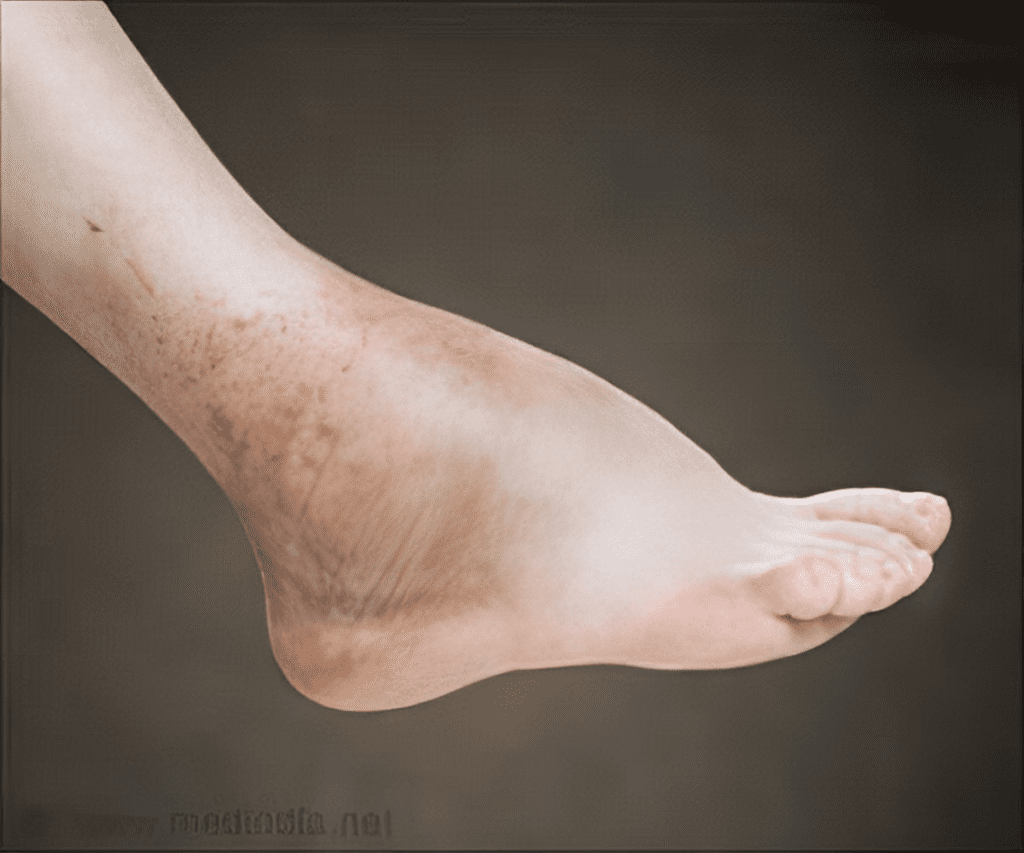Heart failure is a serious condition that affects nearly a million people in the UK alone, and with thousands of new cases each year, it’s becoming increasingly common. Yet, many of its symptoms are easily overlooked, and there’s one particular red flag that might reveal itself while you’re lying in bed. Recognizing the signs early on is crucial, as early intervention can greatly improve quality of life and potentially extend it. Let’s explore what heart failure is, its symptoms, and the subtle yet critical warning sign you should be aware of, especially when you’re settling in for the night.
What Exactly is Heart Failure?
Heart failure doesn’t mean your heart has stopped working entirely; rather, it means that your heart isn’t pumping blood as efficiently as it should. This can happen if the heart muscle becomes too weak or too stiff, making it challenging for your body to get the oxygen-rich blood it needs. Over time, heart failure is progressive, often leading to severe health limitations and, in some cases, proving fatal.
While there is no cure, early detection and proper treatment can help manage symptoms, allowing individuals to live longer and improve their quality of life. Knowing the symptoms and paying attention to subtle signs, especially those that appear while you’re in bed, can be lifesaving.
Signs and Symptoms of Heart Failure
Heart failure manifests with a variety of symptoms, many of which can be mistaken for less serious issues. According to Dr. Rosie Godeseth, a cardiologist and Associate Medical Director at Vitality Health, several symptoms consistently appear in heart failure patients, but one is particularly easy to miss—and it often shows up when people are lying down.
Here are some of the most common signs of heart failure:
- Shortness of breath, especially when lying down
- Swelling in the ankles, legs, or abdomen
- Persistent cough or wheezing
- Rapid weight gain due to fluid retention
- Fatigue and weakness
- Dizziness or lightheadedness
These symptoms vary in severity and can develop suddenly or gradually over time. However, one symptom in particular is often overlooked yet can be one of the earliest indicators of heart failure.
The Symptom You Could Notice While in Bed
One of the easily missed signs of heart failure is difficulty breathing when lying flat—a condition known as orthopnea. This symptom occurs because fluid can accumulate in the lungs, making it harder to breathe when you’re not upright. If you find yourself propping up with extra pillows to breathe comfortably or waking up short of breath, it’s worth noting. Dr. Godeseth explains that this is a clear red flag that should prompt you to visit a healthcare provider.
When lying down, fluid in the lungs can press against the airways, making it difficult to draw a full breath. This might cause you to adjust your sleeping position, needing multiple pillows to avoid feeling suffocated. If you experience this, it’s wise to schedule an appointment with a doctor, as they may recommend further evaluations, including a sleep study or heart function tests.
Swollen Ankles and Legs: Another Warning Sign

Heart failure often results in poor blood circulation, which can cause fluid to pool in the lower body. This buildup, known as edema, typically shows up as swelling in the ankles, legs, or even the abdomen. Many people may brush off swollen feet as a minor inconvenience, but in the context of heart failure, it’s a sign that the heart isn’t pumping blood effectively.
If you notice persistent swelling, especially if it’s accompanied by shortness of breath or dizziness, consult a healthcare provider. Swelling that doesn’t resolve easily or that becomes painful could signal worsening heart function and should be checked out promptly.
Persistent Cough and Wheezing: The “Cardiac Cough”
A chronic cough that doesn’t go away can be another subtle symptom of heart failure. Known as a “cardiac cough,” this cough is often caused by fluid buildup in the lungs. People experiencing a cardiac cough might feel a bubbling sensation in the chest or notice that their cough worsens when lying down.
According to Dr. Godeseth, if the cough persists for more than three weeks and produces pink or blood-tinged mucus, it’s essential to see a doctor. While a cough may seem like a minor symptom, when combined with other signs like shortness of breath and swelling, it can indicate a serious underlying issue.
Rapid Weight Gain Due to Fluid Retention
Sudden, unexplained weight gain can also be a sign of heart failure. When the heart isn’t pumping effectively, blood flow to the kidneys decreases, causing the body to retain more sodium and fluid. This excess fluid accumulates in tissues, particularly in the lower limbs, abdomen, and even the lungs.
If you notice rapid weight gain—usually defined as gaining several pounds within a few days—along with swelling in the body, it may be more than just a dietary issue. This weight gain is often linked to fluid retention, signaling that your heart might be struggling to keep up with the body’s demands.

Why Lifestyle Changes are Essential in Preventing Heart Failure
While heart failure is more common among older adults, it’s never too early to start taking preventive measures. Many people believe heart disease only affects those in later life, but the choices we make today significantly impact our heart health down the line. According to Dr. Godeseth, adopting heart-healthy habits can go a long way in reducing the risk of heart failure.
Here are some effective lifestyle changes to consider:
- Eat a Balanced Diet: A diet rich in fruits, vegetables, whole grains, and lean proteins supports heart health. Reducing sodium intake can also help prevent high blood pressure and fluid retention.
- Stay Physically Active: Regular exercise strengthens the heart, improves circulation, and helps maintain a healthy weight—all factors that reduce heart disease risk.
- Avoid Tobacco: Smoking damages blood vessels and increases the risk of heart disease, so quitting can make a big difference.
Dr. Godeseth emphasizes that around 80% of heart disease cases and strokes are preventable with lifestyle changes. By focusing on heart health early in life, you’re setting yourself up for a healthier future.
Conclusion: Staying Alert to Subtle Symptoms Could Save Your Life
Heart failure is a severe condition, but recognizing its signs early—especially the easily missed ones like difficulty breathing in bed—can make all the difference. If you experience shortness of breath when lying down, notice persistent swelling in your ankles or legs, or struggle with a chronic cough, don’t ignore these red flags. Seeking medical attention promptly could help you catch heart failure in its early stages, allowing for treatment that improves your quality of life and extends your years.
Taking proactive steps toward heart health, including lifestyle adjustments and regular check-ups, is essential. Staying informed and alert to the subtle symptoms of heart failure can make a critical difference in managing and preventing this condition.



